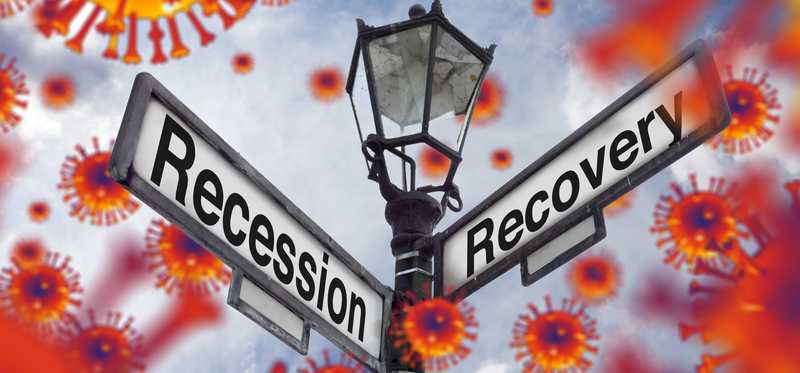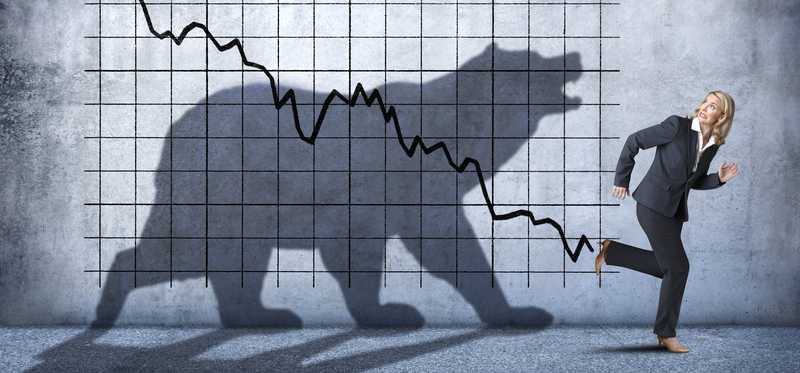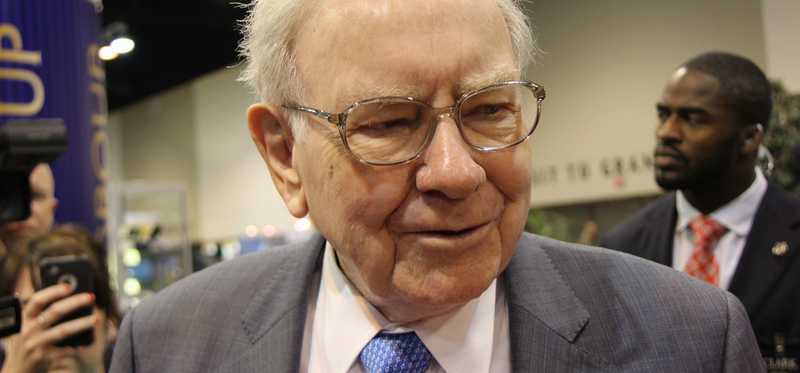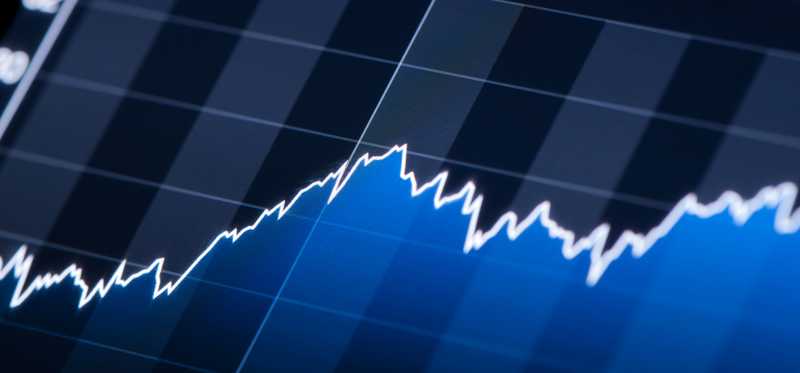12 Reasons to Buy Stocks During a Recession

12 Reasons to Buy Stocks During a Recession
It's beginning to look a lot like a recession
The S&P 500 slumped into a bear market recently, defined as a 20% drop from a recent peak, and the Nasdaq Composite has been there for months.
Meanwhile, other economic data points are flashing red as inflation remains at 40-year highs, consumer confidence has plummeted, and the Federal Reserve is hiking interest rates as fast as it has in a generation.
That's all contributed to increased fears of a recession as rising interest rates are expected to slow down economic growth further after GDP growth was negative in the first quarter.
While it may seem like a scary time to invest, recessions can be great times to put money into stocks. Here are 12 reasons why.
5 Stocks Under $49
Presented by Motley Fool Stock Advisor
We hear it over and over from investors, “I wish I had bought Amazon or Netflix when they were first recommended by The Motley Fool. I’d be sitting on a gold mine!" It's true, but we think these 5 other stocks are screaming buys. And you can buy them now for less than $49 a share! Click here to learn how you can grab a copy of “5 Growth Stocks Under $49” for FREE for a limited time only.
Previous
Next

1. Stocks are on sale
Probably the best reason to buy stocks during recessions is that they're cheap. Stocks almost always fall during an economic downturn as investor expectations for profit growth dim, but recessions are generally short-lived as stocks have eventually recovered from every recession in history.
The coronavirus pandemic and the financial crisis offer good examples of this as stocks more than doubled after the March 2020 crash and rebounded strongly from the financial crisis, setting a new record within five years of its nadir.
Though no one knows when the bear market will hit bottom this time, history has shown the buying during recessions will pay off over the long run.
Previous
Next

2. Take advantage of fear in the market
Warren Buffett has famously counseled, "Be fearful when others are greedy, and be greedy when others are fearful."
Now is an excellent example of a time when most investors are being fearful. Many promising growth stocks have fallen 80% or more from their previous peaks as investors seem to have gone from thinking that pandemic-like conditions would last forever to feeling like the gains of the past two years didn't happen.
That sentiment is unlikely to last over the long term, making many of those hard-hit stocks look oversold. While the bear market could endure for several more months, or even years, investors who buy these growth stocks now should be rewarded over the long term.
Previous
Next

3. The best investors are doing it
Top investors and fund managers don't stop buying stocks just because we're in a bear market.
While there is the risk that stocks will go down over the short term, over the long term they'll almost certainly reach new heights.
Berkshire Hathaway (NYSE: BRK-A) (NYSE: BRK-B), Warren Buffett's conglomerate, has been an active buyer in the market during the downturn, loading up on Occidental Petroleum and adding new positions in Paramount Global, HP, and Citigroup.
If the smartest investors are eager to buy in today's market, there's no reason why you shouldn't be, too.
Previous
Next

4. You can't time the market
As tempting as it may seem to wait until market conditions are friendlier, or after the market bottoms, it will be impossible to know when that happens in real time. Typically there are several bear market rallies in a downturn, though the market can easily gyrate lower after those pass.
In other words, trying to time the market is a mistake. You're better off investing methodically, or making a plan to invest more at certain thresholds as the market falls.
Previous
Next

5. Dividend yields go up
While growth stocks tend to fall the furthest during recessions, you can also take the opportunity to shop for value stocks.
Dividend payers, especially, can make for smart buys during recession as dividend yields go up as prices go down, so sell-offs make for good buying opportunities for income investors.
The financial sector, for example, tends to be one of the most cyclical in the market. These stocks will almost certainly bounce back in the next expansion, but right now investors are worried about possible defaults and a slowdown in lending and investment income.
JPMorgan Chase and Citigroup are both down about a third from recent highs and now offer dividend yields of 3.5% and 4.4%, respectively, above their historical averages over the past 10 years.
5 Stocks Under $49
Presented by Motley Fool Stock Advisor
We hear it over and over from investors, “I wish I had bought Amazon or Netflix when they were first recommended by The Motley Fool. I’d be sitting on a gold mine!" It's true, but we think these 5 other stocks are screaming buys. And you can buy them now for less than $49 a share! Click here to learn how you can grab a copy of “5 Growth Stocks Under $49” for FREE for a limited time only.
Previous
Next

6. You could find a big winner
Recessions and bear markets not only mean that stocks can go on sale. Sometimes you can find hot growth stocks at deep discounts, especially if the market sell-off endures.
In the financial crisis, stocks like Lululemon and Chipotle Mexican Grill plunged so deeply that investors who capitalized on the sell-offs have gotten monumental returns.
Lululemon shares hit a low of $2.16 in March 2009, meaning if you had bought then, you would have a return of more than 100 times your original investment.
If you had bought the stock in the three months leading up to its bottom, you would have made at least 50 times return on your investment.
Simlarly, buying Chipotle at its bottom in November 2008 would have yielded a return near 40 times today.
Previous
Next

7. You're a net buyer of stocks
Unless you're a retiree or nearing retirement, you're probably a net buyer of stocks at this stage of your investing career.
If you're a net buyer of stocks, then you should want stock prices to fall in the short term so that stocks are cheaper and you can buy more of them. Historically, the S&P 500 has returned an average of 9% annually with dividends reinvested. The more stocks fall in the near term, the more likely it is that you'll get an above-average return in the long term.
Previous
Next

8. The economy is cyclical
In a free market economy, there's always going to be another recession, but no one knows when exactly.
There's nothing unusual about a recession, and it's no reason for investors to panic. In fact, it's part of a normal business cycle.
At times, the economy "overheats," or expands too rapidly. That has helped lead to higher-than-normal inflation, which is why the Federal Reserve is rapidly raising rates.
However, even the central bank expects to lower rates by 2024, meaning that it sees the economic cycle turning within two years.
Previous
Next

9. Stick with your plan
Whether you're buying stocks on a regular basis or not, one of the biggest mistakes in investing is letting your emotions take control.
Often during volatile times, hitting the buy button can be emotionally uncomfortable, but it generally pays off.
During the coronavirus crash, for example, the market rapidly bounced back, making March 2020 one of the best times to buy stocks in recent history. One well-known expression, attributed to Baron Rothschild in the 1800s, is to "buy when there's blood in the streets."
The sentiment behind is that is that the bad times won't last forever, so you should take advantage of investor fear while you can.
Previous
Next

10. Inflation isn't bad for stocks
Though stocks have tumbled in the first half of the year, inflation isn't actually as bad for stocks as you might think.
The increased risk of a recession and rising interest rates have pushed stocks lower, but most companies are in a good position to absorb higher prices, with the exception of commodities like fuel, an increase in which only benefits the energy sector.
Companies have the ability to pass along price increases, so stocks tend to be a better way to protect yourself against inflation over the long term than holding cash. If energy costs begin to come down, we may start to see blue chip stocks use inflation to drive profit gains.
5 Stocks Under $49
Presented by Motley Fool Stock Advisor
We hear it over and over from investors, “I wish I had bought Amazon or Netflix when they were first recommended by The Motley Fool. I’d be sitting on a gold mine!" It's true, but we think these 5 other stocks are screaming buys. And you can buy them now for less than $49 a share! Click here to learn how you can grab a copy of “5 Growth Stocks Under $49” for FREE for a limited time only.
Previous
Next

11. Stocks are forward looking
With interest rates on the rise and predictions of recession growing, it may seem like stocks are sure to fall further.
However, the market is forward looking, which means that stocks will begin recovering before the economy does. During the coronavirus pandemic, stocks bounced back once the federal government indicated it would do what it takes to keep the economy afloat. Similarly, during the financial crisis, the stock market bottomed seven months before the unemployment rate peaked.
Stocks are likely to rebound once investors have sense that the nadir of downturn is within view. No one knows when that will be, but the bottom will likely happen before the worst economic data comes in.
Previous
Next

12. Be aware of your biases
Behavioral economics is the field that studies how people behave with money, and there are a number of psychological biases that can affect your decision-making in investing.
One of them is recency bias or the predisposition to overweight recent events. In bear markets, that often means that investors expect the bear market to last a long time and that stocks or market sentiment will similarly remain weak. However, that outlook is generally inaccurate, and in investing, things often change faster than we expect them to.
Investors overweight trends and underweight mean reversion, and in this case, mean reversion means returning to bull market.
Previous
Next

Recession, schmecession
A recession could hit later this year or even next year, and while that prospect is likely to weigh on stock prices, it shouldn't scare you away from putting more money in the market.
Long-term investors should remember that lower stock prices are actually a good thing and that stocks have always bounced back after a recession. While it may be difficult emotionally to invest when the economic news seems mostly dismal, the turnaround will probably come sooner than you think.
JPMorgan Chase is an advertising partner of The Ascent, a Motley Fool company. Citigroup is an advertising partner of The Ascent, a Motley Fool company. Jeremy Bowman has positions in Chipotle Mexican Grill. The Motley Fool has positions in and recommends Berkshire Hathaway (B shares), Chipotle Mexican Grill, HP, and Lululemon Athletica. The Motley Fool recommends the following options: long January 2023 $200 calls on Berkshire Hathaway (B shares), short January 2023 $200 puts on Berkshire Hathaway (B shares), and short January 2023 $265 calls on Berkshire Hathaway (B shares). The Motley Fool has a disclosure policy.
Previous
Next
Invest Smarter with The Motley Fool
Join Over Half a Million Premium Members Receiving…
- New Stock Picks Each Month
- Detailed Analysis of Companies
- Model Portfolios
- Live Streaming During Market Hours
- And Much More
READ MORE
HOW THE MOTLEY FOOL CAN HELP YOU
-
Premium Investing Guidance
Market beating stocks from our award-winning service
-
The Daily Upside Newsletter
Investment news and high-quality insights delivered straight to your inbox
-
Get Started Investing
You can do it. Successful investing in just a few steps
-
Win at Retirement
Secrets and strategies for the post-work life you want.
-
Find a Broker
Find the right brokerage account for you.
-
Listen to our Podcasts
Hear our experts take on stocks, the market, and how to invest.
Premium Investing Services
Invest better with The Motley Fool. Get stock recommendations, portfolio guidance, and more from The Motley Fool's premium services.